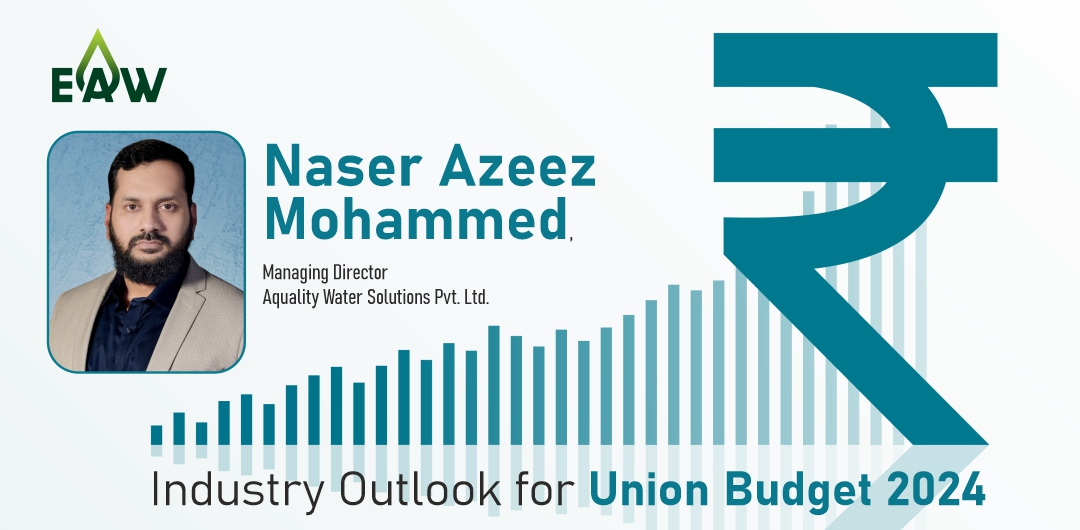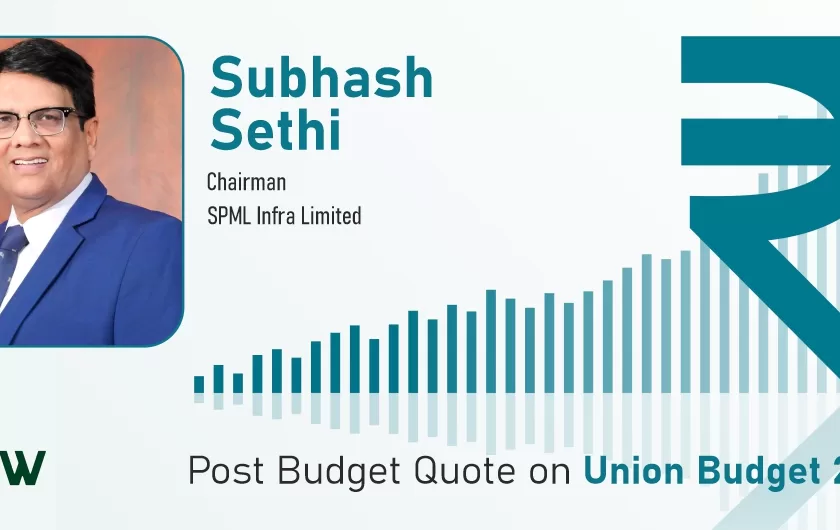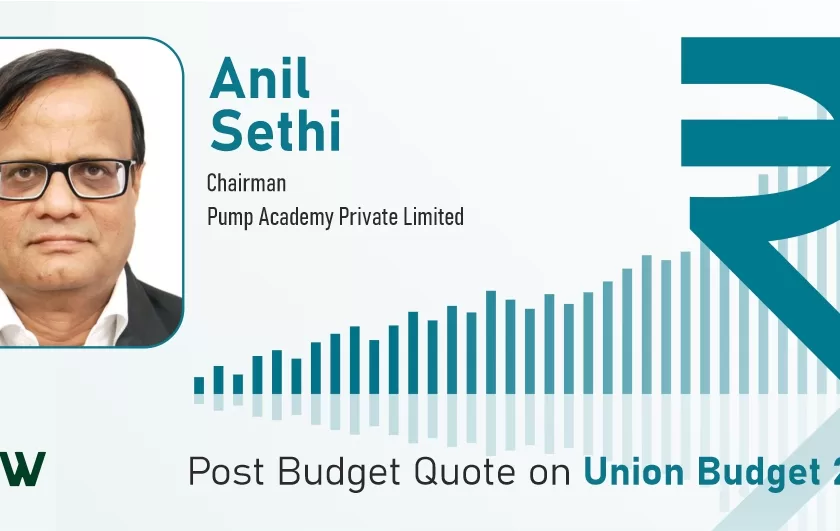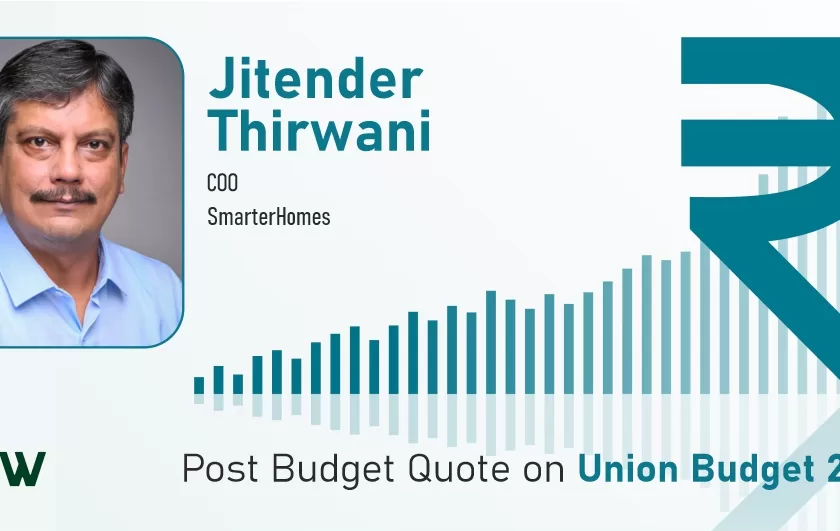By Naser Azeez Mohammed, Managing Director, Aquality Water Solutions Pvt. Ltd.
The World Economic Outlook report from the International Monetary Fund (IMF) anticipates an improvement in global economic growth in 2024, reaching 3.1%. The IMF also projected that India will attain the position of the third-largest economy by 2027. India has showcased resilience throughout 2023, overcoming challenging global economic conditions. The initial advance estimate indicates a projected gross domestic product (GDP) growth of 7.3% for the financial year FY24.
In FY25, India’s economic growth will consistently be driven by government revenue expenditure, with the funds allocated under the budget for 2024 dedicated to infrastructure development, ultimately resulting in improved output. The budget proposal to create a fund of Rs. 1 trillion for extending long-term interest-free loans to the private sector in emerging sectors is a commendable initiative. This aims to stimulate research, innovation, and technological development. The move is particularly beneficial for start-ups and MSMEs, enabling them to harness technological innovation to build resilient systems and achieve improved outcomes with limited resources.
The Interim Budget 2024, as presented by the Finance Minister, establishes the groundwork for a prosperous and advanced India, fostering comprehensive development supported by modern infrastructure. The projection of the fiscal deficit for FY25 at 5.1% of GDP is indeed encouraging, providing a significant boost to the Indian economy. This fiscal discipline is likely to capture the interest of foreign investors, attracting substantial foreign direct investment in various sectors, further boosting the economic growth.
The water sector, being a growth harbinger for various industries, has witnessed commendable attention from the government. The strategic push towards establishing a robust water infrastructure is not only vital for addressing immediate concerns but also contributes significantly to the overall development of other sectors. This foresighted approach aligns with the government’s commitment to fostering sustainable growth and ensuring the well-being of the nation.
Under the interim budget for 2024-25, the Ministry of Jal Shakti (MoJS) has been allocated Rs. 984.18 billion, indicating a 1.93% increase from the revised estimate of Rs. 965.48 billion in the fiscal year 2023-24. Within this allocation, a substantial outlay of Rs. 699.26 billion has been directed towards the Jal Jeevan Mission/National Rural Drinking Water Mission, emphasizing the government’s commitment to providing clean and accessible drinking water to all citizens.
The allocation for the Swachh Bharat Mission, encompassing both rural and urban areas, has witnessed a commendable 28% increase, reaching Rs. 121.92 billion. This notable rise in funds underscores a dedicated emphasis on enhancing sanitation facilities in both urban centres and the rural heartland of the country. The increased financial commitment reflects a concerted effort to address and improve sanitation infrastructure across the country.
The developing water and wastewater treatment sector emerges as a pivotal player, showcasing significant growth potential. The heightened focus by the government to provide clean drinking water and increased sanitation facilities will be escalating development of water and wastewater treatment infrastructure, collectively fostering a more sustainable and hygienic living environment across the country.
We, at Aquality Water Solutions Pvt. Ltd., perceive the allocation of funds for water and sanitation in the budget as crucial and integral to our commitment to promoting sustainable water management practices. We recognize the significance of financial allocation to ensure the availability and sustainability of clean water and sanitation services. It is our steadfast belief that adequate budgetary provisions contribute directly to the enhancement of water quality, accessibility, and overall environmental well-being.
We stress the significance of addressing the urgent challenges associated with water quality through innovative treatment facilities. One notable solution involves harnessing renewable resources, such as the implementation of a solar-powered water filtration system. This approach not only emphasizes our commitment to sustainable practices but also serves as a proactive step towards effectively addressing water quality concerns and ensuring access to clean and safe water for security establishments and communities inhabited in remote locations.





